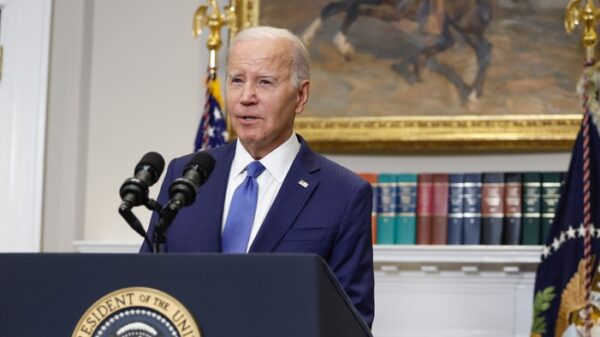A new task force would examine issues that surfaced during the pandemic, including semiconductor shortages.
The Biden administration Tuesday released recommendations following a 100-day review of varying supply-chain issues, including the creation of a task force that would provide an “all-of-government response” to near-term supply chain challenges.
The Supply Chain Disruptions Task Force would examine issues that surfaced during the pandemic, including semiconductor shortages, and would be led by the secretaries of the Commerce, Transportation and Agriculture departments.
“The Task Force will bring the full capacity of the federal government to address near-term supply/demand mismatches. It will convene stakeholders to diagnose problems and surface solutions—large and small, public or private—that could help alleviate bottlenecks and supply constraints,” the report states.
The report—itself the work of a task force of more than one dozen agencies—covered semiconductor manufacturing, large capacity batteries, critical minerals and materials and pharmaceutical ingredients. It calls on the administration to “double-down” on innovation infrastructure, reinvest in research and development and accelerate the ability to move innovations “from the lab to the marketplace.”
“Our private sector and public policy approach to domestic production, which for years, prioritized efficiency and low costs over security, sustainability and resilience, has resulted in the supply chain risks identified in this report,” the report states. “As the Administration sets out on a course to revitalize our manufacturing base and secure global supply chains, rebuilding for resilience at the national level requires a renewed focus on broad-based growth and sustainability.”
While the report calls for increased domestic production of goods like semiconductors, which are produced largely in China, it also calls for new public-private approaches to resilience in dealing with new threats of cyberattacks to critical industries. Other recommendations include: rebuilding production and innovation capabilities; supporting the development of markets that invest in workers and sustainability; leverage the government’s role as a purchaser and investor in critical goods; strengthening international grade rules, including trade enforcement mechanisms and working with allies to decrease vulnerabilities in global supply chains.
It further calls on the administration to create a data hub to monitor near-term supply chain vulnerabilities.
“We recommend that the Commerce Department lead a coordinated effort to bring together data from across the federal government to improve the federal government’s ability to track supply and demand disruptions and improve information sharing between federal agencies and the private sector to more effectively identify near term risks and vulnerabilities,” the report states.





























You must be logged in to post a comment Login